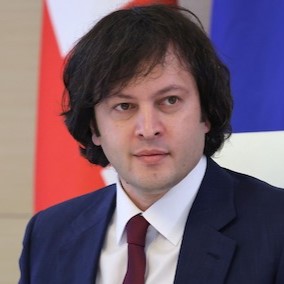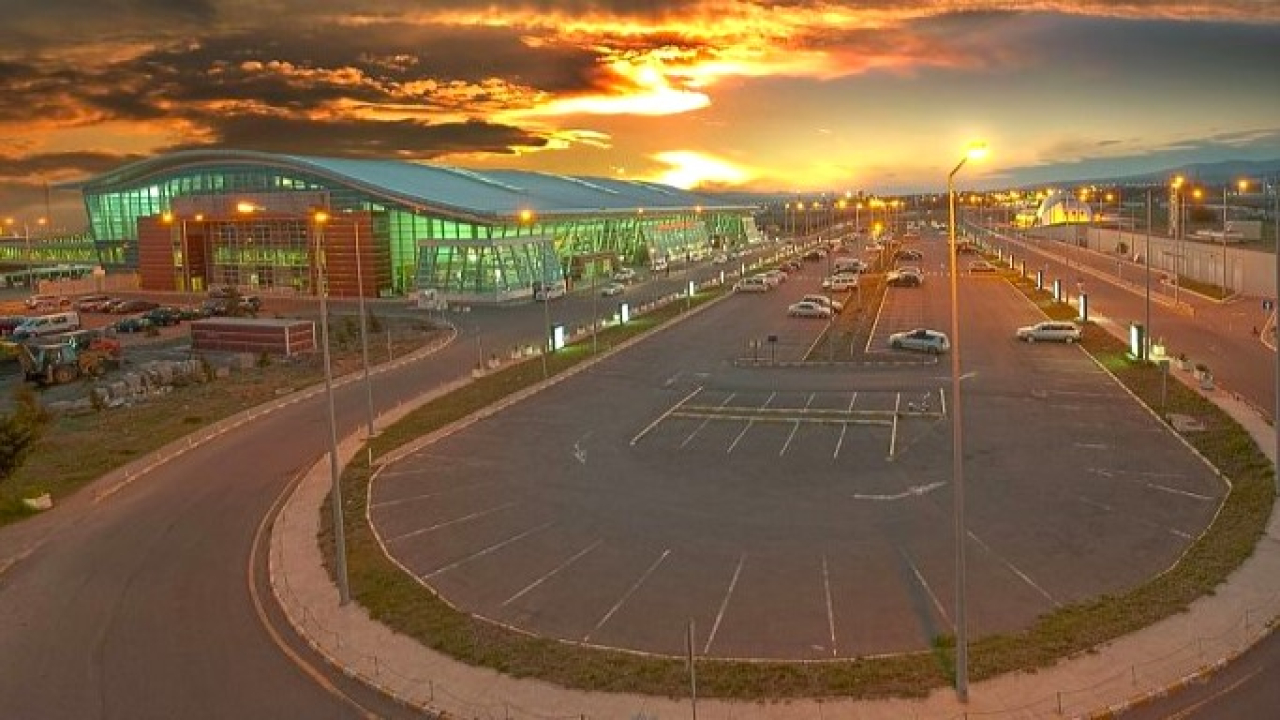Georgian Prime Minister Confirms New International Airport for Tbilisi
Kevin Rozario
April 10, 2024

Tbilisi at sunset.
© Neil Sengupta / Unsplash

Georgian Prime Minister, Irakli Kobakhidze.
© Georgian Government.
Georgia’s Prime Minister, Irakli Kobakhidze, has confirmed that a new international airport will be built to serve the capital, Tbilisi, and nearby regions. It will have better inter-connectivity than the existing gateway Tbilisi International (TBS) which is home to flag carrier Georgian Airways and MyWay Airlines, the latter founded in 2017.
According to Agenda.ge, an English-language news platform launched by the Georgia government in December 2013, the prime minister made the announcement during a weekly government meeting on Monday.
Kobakhidze said that a former airfield in Vaziani about 33 kilometers east of the capital city will be used for the greenfield project, which is expected to cost US$1.26 billion. The prime minister added that the new airport would have a “significant positive impact” on the domestic economy, increasing it by about US$130 million “over the next few years.”
The existing TBS—also to the east of the capital but much nearer—served 3.7 million passengers in 2023, which is the same as pre-pandemic 2019. However, the international airport, run by Turkey's TAV Airports, only has a capacity of around 4.5 million passengers per year, which is likely to be exceeded in the short term.
As a result, Georgia’s Economic Council had been mulling either an expansion of the existing facility or building a new one. Kobakhidze said the cost of developing the current site would be in the order of US$900 million, not much less than the cost of building a new state-of-the-art gateway.

The existing airport serving Tbilisi.
© Gmaisuradze15 / Wikipedia
Capacity Crunch & Expansion Limitation
He added that an expansion of TBS would enable a capacity increase to a maximum of 15 million “with no further development prospects” whereas a new greenfield airport would have a passenger capacity of 19 million on opening, with potential for further expansion.
According to Kobakhidze, design and tender procedures for the facility would be completed next year, without mentioning a timetable or when the bidding process would begin. He thanked the Ministry of Economy for its work on the project.
In June last year, the idea of a new greenfield airport was floated by the previous prime minister, Irakli Garibashvili with the intention of transforming Georgia into a regional hub. At the time, he said that the “disadvantages and limitations” of TBS were being revealed due to rising tourist traffic. In the first quarter of 2023 numbers more than doubled (up 110% year-over-year) to 1.2 million according to Georgia’s National Tourism Administration.
However, Garibashvili resigned in January ahead of elections and, instead, took the role of chairman of the ruling Georgian Dream party of which Kobakhidze became leader and Prime Minister in early February. Before that, he was the party’s chairman. The moves—even though they amounted to swapping positions—meant that new political approval of the greenfield airport was needed, despite this being largely a formality.
Operational from 2028
On Monday, Georgia’s Economy Minister Levan Davitashvili went into more depth about the project. He said that a detailed plan would be ready by the end of 2025, with construction expected to take three years. Full operations would begin by late 2028.
Behind the scenes, the Ministry of Economy had been working on the project for some months, with studies conducted alongside the Ministry of Defence—which had operated the site when it was an airbase—and with the involvement of the Asian Development Bank.
Davitashvili said that ‘navigational’ studies were still taking place, with the configuration of the new runway to be determined in the next phase. An international consulting company has been involved in the airport management part of the project, with “several options” identified. The minister said the state would retain full control and ownership of the new airport but that a management company would be selected to run it.
